Following a two-week controversy in Alabama, Republican leaders are affirming that they both support in-vitro fertilization and respect the sanctity of human life from conception.
At the same time, there appears to be no comprehensive solution to bridge the gap between pro-life beliefs and the widespread destruction of human embryos that the IVF industry demands.
Fox News Digital spoke to top Republican leaders and policy experts to get a grasp on how the GOP plans to tackle the IVF issue moving forward.
How IVF was thrust into the spotlight
On February 16, the Alabama Supreme Court ruled that embryos are legally considered children under the state’s long-standing pro-life laws — opening the possibility for legal action when intentionally terminating them at fertility clinics.
The justices cited language in the Alabama Constitution that allows parents to sue over the death of a minor child and said that the 1872 law “applies to all unborn children, regardless of their location.”
The reliably pro-life Alabama public also voted in 2018 to add language recognizing the “rights of unborn children.”
“Unborn children are ‘children’ … without exception based on developmental stage, physical location, or any other ancillary characteristics,” Justice Jay Mitchell wrote in the ruling.
The backlash from IVF clinics — concerned that the standard practice of terminating vast amounts of human embryos could lead to criminal lawsuits — caught the pro-life GOP off-guard.
Immediately, sweeping protections for IVF procedures were pushed by Republicans on the local, state and national levels. Pro-choice advocates characterized the situation as incoherent with the party’s firm stance against unrestricted abortion access.
Even former President Donald Trump announced via his proprietary social media platform Truth Social that he “strongly support[s] the availability of IVF,” saying, “Under my leadership, the Republican Party will always support the creation of strong, thriving, healthy American families. We want to make it easier for mothers and fathers to have babies, not harder!”
Within two weeks, a Republican-backed piece of legislation granting “civil and criminal immunity for death or damage to an embryo” for people “providing or receiving services related to IVF” was passed and immediately signed into law by the governor. It extended the same immunity retroactively.
How the Alabama GOP feels about the situation in retrospect
Fox News Digital reached out to the Alabama Republican Party for their thoughts on how the IVF debate has unfolded in their state.
“The Alabama Republican Party is proudly pro-life and pro-family, as demonstrated by our Party’s platform. We believe in protecting people’s rights and freedoms from the beginning of life to the grave,” Alabama Republican Party Chairman John Wahl told Fox News Digital. “We feel that support of in-vitro fertilization is completely consistent with that position. IVF gives parents who otherwise may not be able to conceive the opportunity to bring new life into the world.”
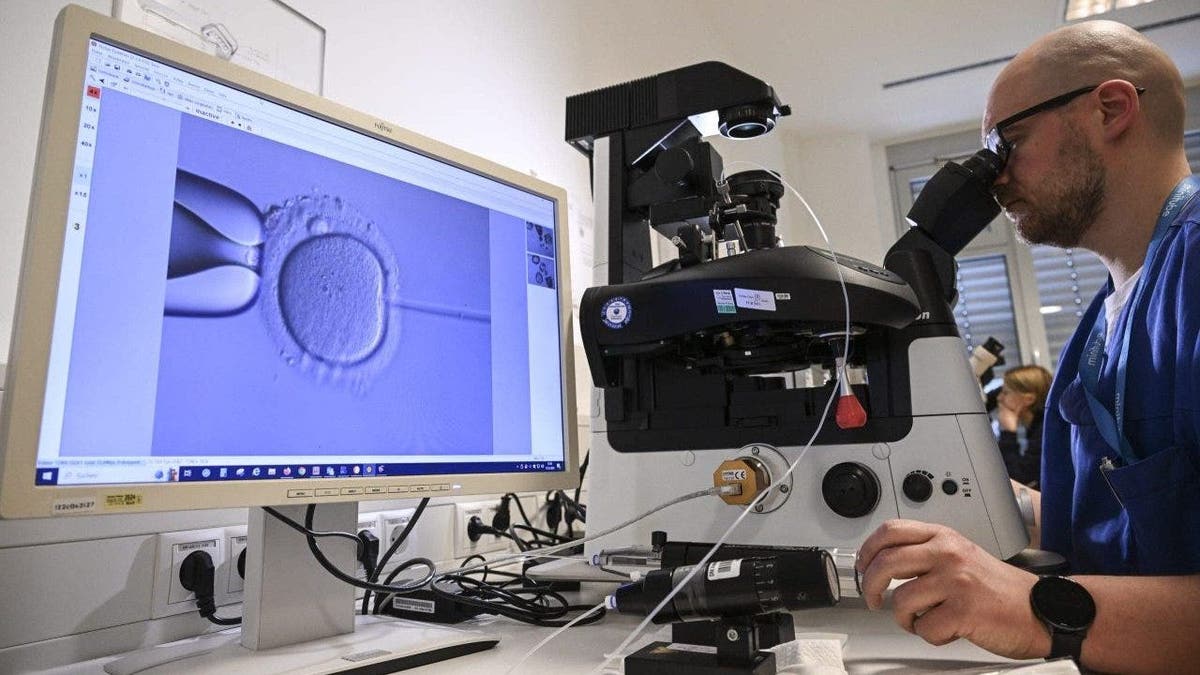
Wahl pointed Fox News Digital to the fact that the state supreme court’s ruling favored couples who felt victimized by the accidental loss of their frozen embryos.
“If you looked at what really happened in Alabama, this court case originated with families asking for help and a redress of grievance after they were victimized, losing the children they had hoped and prayed to bring into this world,” Wahl said. “The decision by the Alabama Supreme Court was actually in support of families engaged in the IVF process.”
Wahl told Fox News Digital that the most frustrating part of the media circus surrounding the court’s ruling was watching many outlets spin it as a purposeful encroachment by the government against couples seeking IVF.
“It’s sad to see the Democrat Party and the leftist mainstream media distort this court case and use it as a political weapon. If you looked at what really happened in Alabama, this court case originated with families asking for help and a redress of grievance after they were victimized, losing the children they had hoped and prayed to bring into this world,” Wahl said.
He continued, “The decision by the Alabama Supreme Court was actually in support of families engaged in the IVF process. The Alabama Republican Party has consistently demonstrated its commitment to protecting all human life, and speaking for those who have no voice. Liberal talking heads from around the country should remember what this case was about, and not twist it for their own agenda. We call on them to remember the Alabama families who were victimized and to be respectful of their loss.”
Having passed the legislation to stop an immediate shut-down of the IVF industry in the state, the Alabama Republican Party is now looking to craft a “solution that provides ethical boundaries while making sure families have access to IVF.”
“Where the problem lies is the lack of policy and regulation concerning the process as it pertains to the embryos themselves, which desperately needs to be addressed by the states, including Alabama,” Wahl told Fox News Digital.
He continued, “Currently, Louisiana is the only state that has a law concerning IVF, which gives personhood status to embryos. The Alabama Republican Party believes strongly that IVF can be done while still respecting the sanctity of life.”
Louisiana is unique for its categorization of human embryos as “juridical persons” — protecting them from intentional destruction. It is only after the embryo fails to further develop naturally that it is considered non-viable and loses that protection.
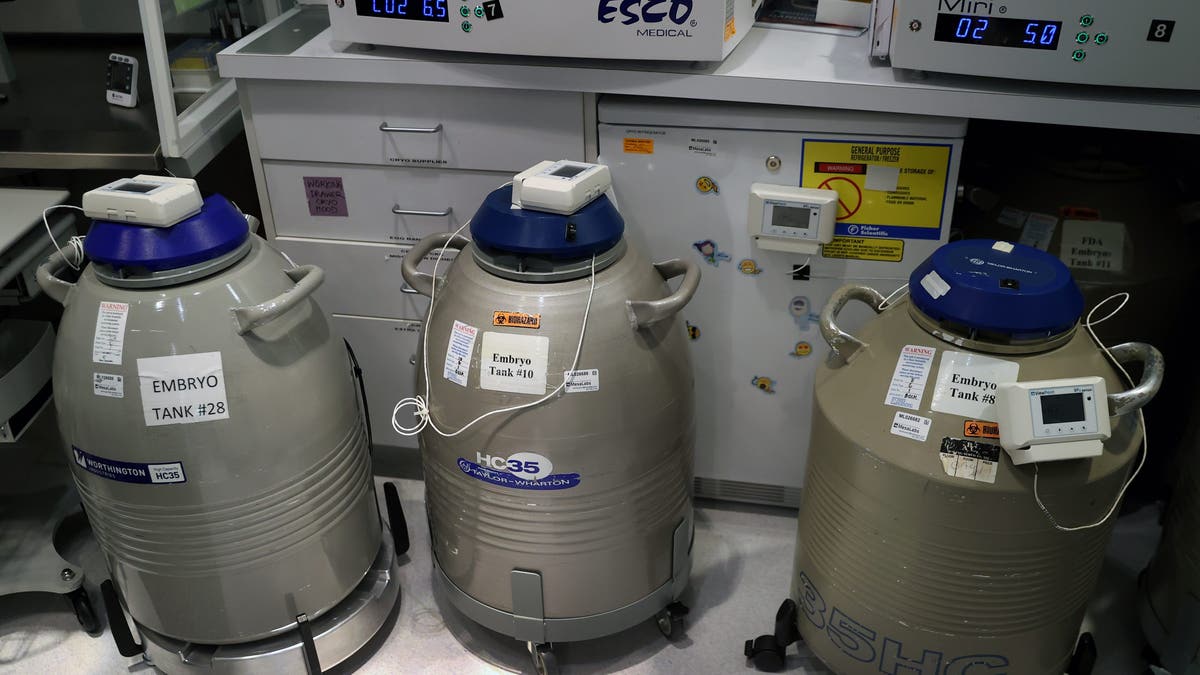
“A viable in vitro fertilized human ovum is a juridical person which shall not be intentionally destroyed by any natural or other juridical person or through the actions of any other such person,” according to Louisiana civil code. “An in vitro fertilized human ovum that fails to develop further over a thirty-six hour period except when the embryo is in a state of cryopreservation, is considered non-viable and is not considered a juridical person.”
Understanding the GOP’s internal conflict between ‘sanctity of human life’ and IVF
“We often call the fertility industry the ‘Wild West,’ because these aspects of the practice are unregulated,’ said Emma Waters, a senior research associate at the DeVos Center for Life, Religion, and Family.
She explained, “For example, the CDC requires fertility clinics — without an enforcement mechanism — to report their overall success rates in a single IVF cycle. This only considers the embryos implanted in a woman that result in a live birth, it does not consider the total number of embryos created.”
In her position, Waters is responsible for evaluating and contributing to research regarding key social issues related to conservative values and policy.
IVF has become one of her most in-demand areas of expertise — despite only 2.3% of births in the U.S. being the result of IVF, according to reports from the Centers for Disease Control and Prevention.
Waters told Fox News Digital that her data research — hampered by the lack of required logistical reports from clinics — shows a tremendous gap between the number of embryos created and the number of embryos implanted in hopes of a viable pregnancy.
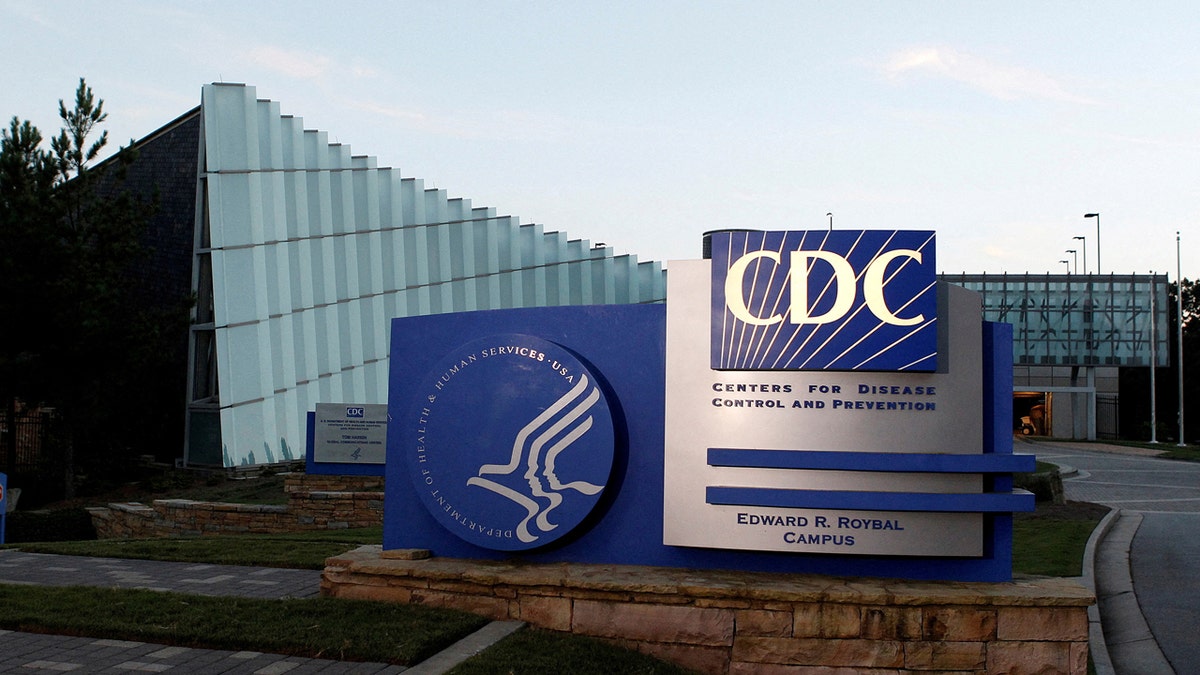
“From 2021 data from the CDC (the most recent year available) we know that over 413,000 assisted reproductive technology cycles, of which the majority are IVF, were completed in a single year. Of these 413,000 cycles, only a little over 97,000 children were born. This is a ‘success rate’ of about 23%. From anecdotal data, a conservative estimate suggests that as few as eight embryos may be created in a single round, but it is more likely than 15–20 embryos are created in a single round of IVF,” Waters explained.
She continued, “If we assume that, on average, 10 embryos are created in a cycle of IVF or reproductive technology, this means that over 4.1 million embryos are created annually, and yet only 97,000 children born. This means that roughly 97% of embryos created do not result in a live birth and are instead destroyed, frozen or donated to research. For the embryo involved, IVF has very low success rates indeed.”
This means that the fundamental question for members of the pro-life movement who voice support for IVF, as it is practiced today, is whether intentional destruction of embryos is acceptable practice for fertility clinics.
What pro-life leaders in the party are saying about IVF
Perhaps the most prominent pro-life Republican pushing to protect IVF clinics is Speaker of the House Mike Johnson.
Johnson, a deeply religious evangelical Christian, has been a fierce advocate for pro-life policies throughout his career.
When pressed on IVF and the large-scale termination of human embryos it currently produces, Johnson acknowledged ethical concerns and urged responsible policymaking, but he didn’t offer concrete recommendations.
“Speaker Johnson has long advocated for the sanctity of every human life and worked to help foster a culture that encourages family creation and supports mothers and babies,” a spokesperson told Fox News Digital.
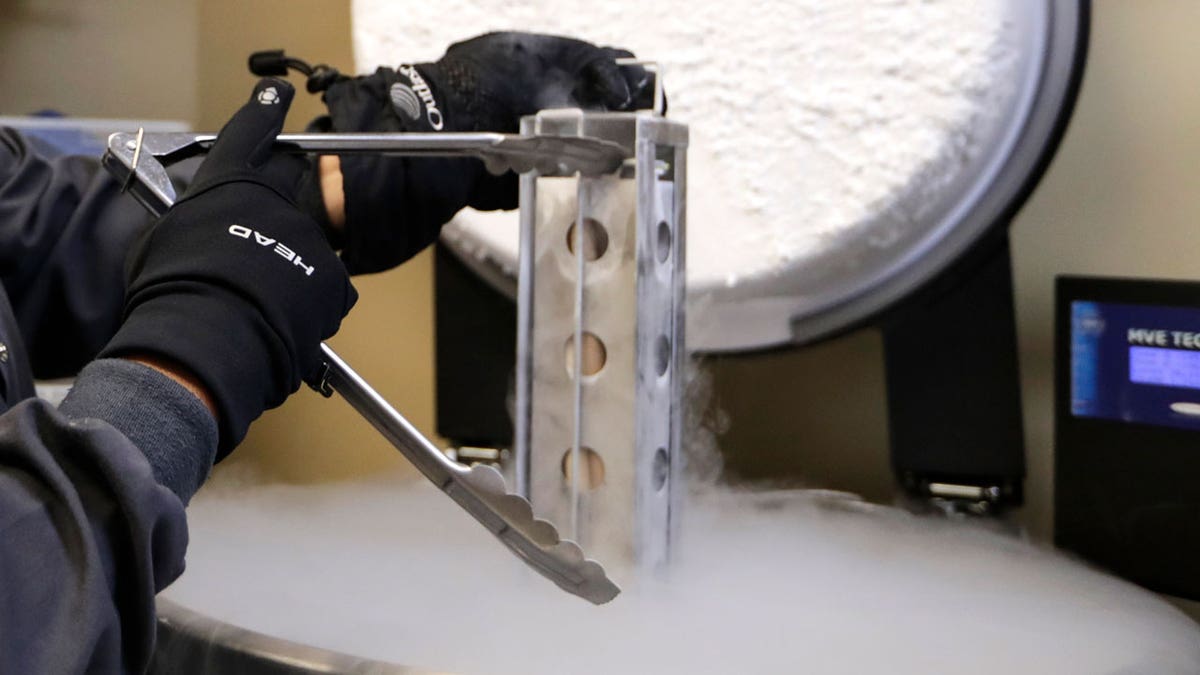
The spokesperson added, “He has touted the positive benefits of IVF treatments and has encouraged states to take up the issue responsibly and ethically.”
Former Vice President Mike Pence, another long-standing ally of the anti-abortion movement in a similar vein to Johnson, is in a similar situation after voicing support for IVF following the Alabama ruling.
Fox News Digital reached out to Advancing American Freedom (AAF), the conservative policy advocacy group founded by Pence. The organization is the center of the former VP’s political activity following his time in office.
Similar to Johnson, AAF said it supports both IVF and pro-life policy ethics, but it was more explicit in condemning current IVF practices and offered some starting points.
“Life begins at conception. Advancing American Freedom celebrates the millions of people who were born as a result of in vitro fertilization (IVF), but mourns the countless unborn children who are carelessly discarded or indefinitely frozen under current industry practices,” said AAF Policy Director John Shelton.
Shelton continued, “American families deserve more humane technology, more compassionate practices (like embryo adoption), and better safeguards for their children. No other countries settled for such a tragic status quo, and neither should the greatest nation on earth.”
‘Controversial practices’ beyond normal IVF
Intentional terminations of human embryos usually occur at multiple points along the IVF treatment process, and for a variety of reasons.
Embryos are at risk of perishing due to failure to develop after fertilization, or they could fail to implant inside the woman hoping to become pregnant.
The pro-life position regards these instances no more ethically questionable than natural impregnation — which can also result in the unintended death of the embryo or fetus.
More concerning is when IVF embryos are intentionally destroyed for selective breeding purposes.
“Seventy-five percent of clinics offer such preimplantation genetic testing, and 73% allow for sex-selection and other eugenic practices that are often illegal even in abortion,” Waters told Fox News Digital.
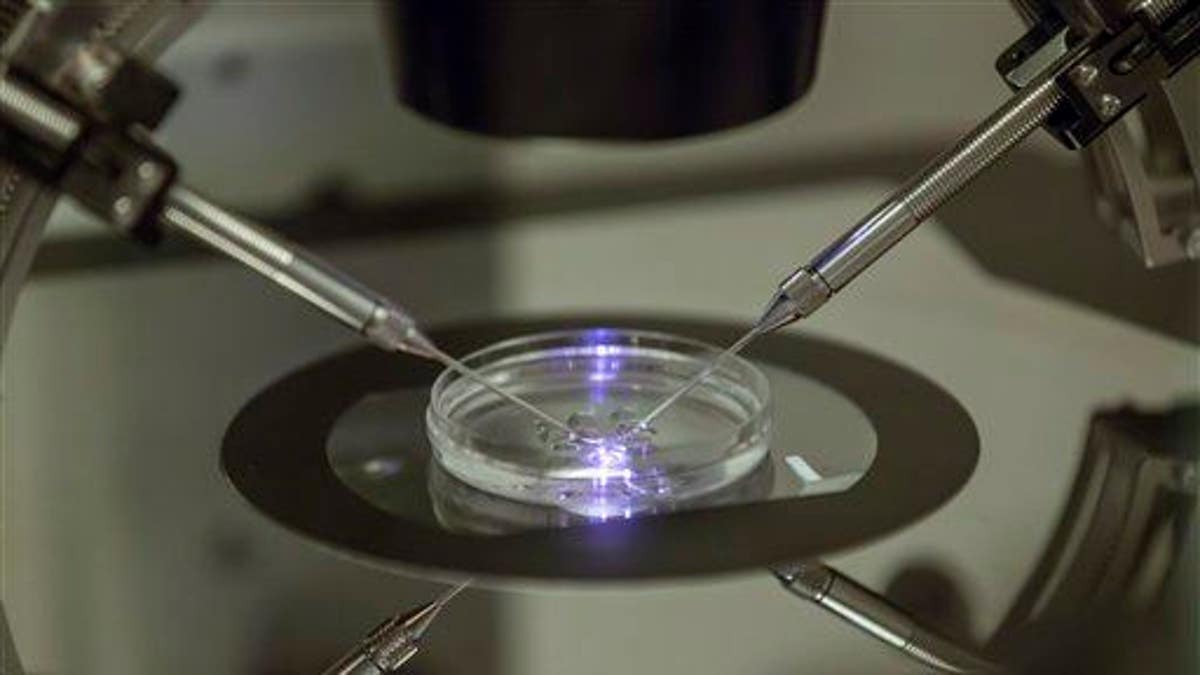
Medical literature available from the government and other health regulatory bodies affirms this reality. While often acknowledged as “controversial,” the U.S. has virtually no restrictions on terminating IVF embryos for disabilities or undesired characteristics.
“If you or your partner is at risk of passing on a genetic disorder to your child, your health care team might recommend getting a procedure that involves IVF,” the Mayo Clinic explains in its website’s in vitro fertilization overview. “It’s called preimplantation genetic testing. After the eggs are harvested and fertilized, they’re checked for certain genetic problems.”
Sex-selective IVF — which leads to the freezing or destruction of any created embryos not of the patient’s desired gender — is available in many states.
The American Society for Reproductive Medicine (ASRM) has acknowledged the reality of sex-selective IVF being advertised as a flagship service by boutique clinics, as well as the moral questions it raises.
But ASRM explicitly avoids taking an ethical stance on the practice.
“Nonmedical use of preconception sex selection and in vitro fertilization (IVF) with preimplantation genetic screening (PGS) for sex selection are controversial practices,” the ASRM Ethics Committee wrote in a document outlining the practice.
The text continues, “Because these practices are ethically controversial, clinics are encouraged to develop and make available their policies on the provision of nonmedical sex selection, and to accommodate employees’ decisions about whether or not to participate in such treatment.”
In its policy platform, the Republican Party “[calls] on Congress to ban sex-selection abortions and abortions based on disabilities — discrimination in its most lethal form.”
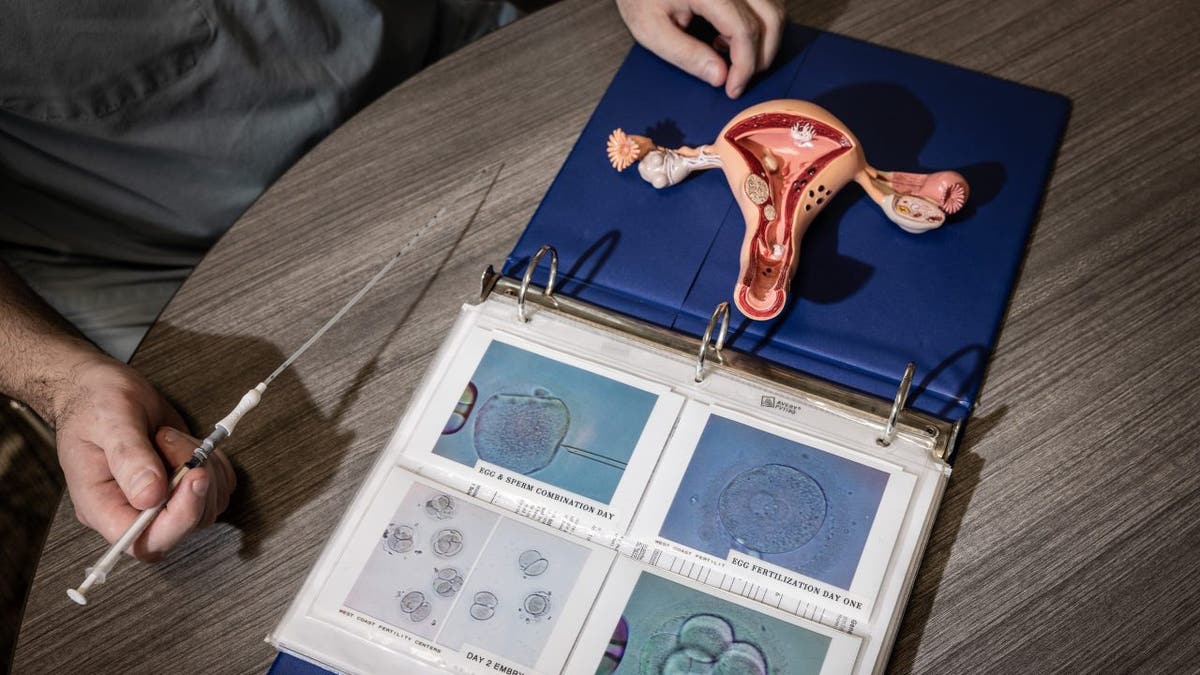
The future of IVF in the Republican Party platform
The Republican Party’s platform on IVF is still largely undefined, and its future will be determined by voters’ priorities and discussions by policymakers.
“Many Republicans may feel like they are trapped in a strict binary between either being ‘pro-IVF’ with no regulations, or painted as anti-IVF, a politically suicidal position. Most Republican lawmakers, however, seem instinctively drawn to a position of enforcing a well-regulated form of IVF,” Waters told Fox News Digital.
She continued, “We should continue encouraging lawmakers to pursue a nuanced and life-sparing form of IVF as they seek to govern it in a way that is consistent with the pro-life ethic; namely that life begins at the moment of conception and deserves the right to life, regardless of where they are conceived.”
Read the full article here